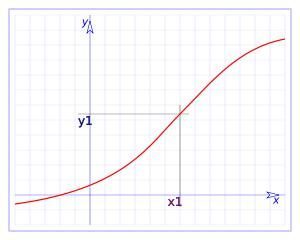 Uncertainty refers to the doubt or perplexity that one has about a matter or question. "There is enormous uncertainty about the direction the negotiations will take following the director's recent decision to step down." In this sense of the term, the uncertainty equals a state of doubt in which the limit of trust or belief in the truth of a certain knowledge predominates.
Uncertainty refers to the doubt or perplexity that one has about a matter or question. "There is enormous uncertainty about the direction the negotiations will take following the director's recent decision to step down." In this sense of the term, the uncertainty equals a state of doubt in which the limit of trust or belief in the truth of a certain knowledge predominates.
Within a state of uncertainty there will be a very clear difficulty in making a forecast about the future. The feeling absolutely opposite to uncertainty is certainty. When someone is certain of something it is because there is a priori a sure and evident knowledge that something is true, there is irrefutable evidence and a state of affairs that confirm it as true. The uncertainty in question may affect the fields of action and decision or affect the belief, faith or validity of a certain knowledge.
Suspend actions until you have a clear picture
The normal thing in these cases is the suspension of the decision that was thought to be implemented in the face of a normal state of affairs to avoid in this way any mistake or gross error that could complicate us in the future.
Use in economics and statistics
For example, let's think about the unstable economic situation in the country we live in, rising inflation that reaches double digits, devaluation of the national peso, total exchange rate disparity with respect to the dollar currency, among others. In this scenario, a person who has savings to buy a home that is priced at the dollar price will withdraw and will not be encouraged to pay the price they ask for the uncertainty that the situation shows, since tomorrow or in a month you could lower your price and lose money.
Although in the economic context that we mention, uncertainty is usually a recurring problem and that is why we decided to graph the concept with it, we must say that uncertainty can appear in any other order of life and it will always be the state of doubt, of mistrust that it will determine that feeling of uncertainty.
Now, we must emphasize that in economic and statistical contexts, it is where the use of this concept is most appreciated, when the circumstances that arise make it impossible to carry out an accurate diagnosis about what will come as a consequence of the current state of affairs. . Of course and as we have already seen thanks to the example, uncertainty has negative consequences for economic activity because it will limit investments of any kind in a transcendent way.
For example, uncertainty is approached scientifically from the economy to be able to consider decisions and solutions appropriate to that special context.
Insecurity that someone feels in the face of a fact
On the other hand, due to uncertainty, the insecurity that an individual may experience after a certain event. "After the violent avalanche there is great uncertainty about the whereabouts of the expedition members."
In both cases mentioned above, uncertainty has a negative connotation and that will basically consist of a significant degree of ignorance, or failing that, a lack of information because in fact there are disagreements about what is known or what could be known.
Use in quantum mechanics
On the other hand, at the behest of quantum mechanics, the uncertainty principle argues that certain pairs of physical variables cannot be determined simultaneously and with arbitrary and absolute precision, such as, for example, the position and amount of movement exhibited by a certain object. While, in Statistics, the propagation of uncertainty It is the effect of variables of uncertainties, also called errors, on the uncertainty of establishing a mathematical function based on these.
Within this same context, we find the typical deviation which turns out to be a measure of centralization or dispersion for variables, whether of ratio or interval, and which is generally interpreted as a measure of uncertainty.









